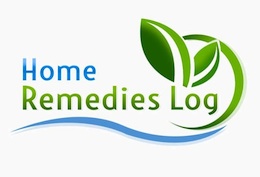
The B-vitamins are often thought of as one unit, and in some ways, this is accurate since they perform many of the same functions; but each of them also makes their own unique contributions to your health. Niacin is one of the forms of vitamin B3, and is readily available in a variety of foods, meaning your body’s basic need for this substance is easily met through diet. But, like many other natural substances, it may offer specific health benefits when used in supplement form.
Functions
Like the rest of the B-vitamins, your body uses niacin to turn nutrients—carbohydrates in particular—to energy. It promotes healthy functioning of the nervous systems and is important for the health of your eyes, hair, skin and liver. Niacin, in particular, plays an important role in maintaining healthy cholesterol levels and this is one of its most important unique contributions to our health.
A deficiency can result in a condition called pellagra, which causes skin problems and other physical symptoms, as well as a number of mental disturbances; this disease is primarily limited to underdeveloped countries. If you live in an industrialized nation, your typical diet provides for enough niacin to avoid a deficiency and the only instance that may pose a risk of deficiency is alcoholism.

Niacin in the Diet
Niacin is abundant in a variety of foods, and like it was mentioned earlier, you should have no issues getting enough through a typical diet. Sources include chicken, fish, beef, turkey, grains such as cereal and bread, peanuts, lentils, lima beans, brewer’s yeast and sunflower seeds. Eggs and dairy are also good choices since they contain a substance called tryptophan, which your body uses to make niacin.
Heart Health
Taking niacin in supplement form has been touted to address a number of conditions, but its benefits for the heart have been the most firmly established. Niacin helps keep cholesterol levels in check by boosting production of HDL, the ‘’good’’ cholesterol that helps rid the body of LDL, or the ‘’bad’’ cholesterol that jams up our arteries and increases the risk of death from heart disease, heart attacks and strokes. It also helps lower triglycerides—a type of fat found in the blood that along with high cholesterol may increase the risk of heart disease.
When it comes to using vitamins and minerals to treat health problems, the amounts required to achieve a therapeutic effect are often much higher than what is needed to prevent deficiency and meet your body’s basic needs. The amount of niacin available in the diet is not sufficient to lower high cholesterol levels and you would need to take very high doses in supplement form. There are prescription forms available that your doctor can provide you; you can also use regular over-the-counter supplements but these may come with unwanted side effects when used at such high doses and you should only go this route with professional guidance on proper use.
Other Health Benefits
High intake of niacin has been linked to reduced risk of Alzheimer’s but whether or not taking niacin supplements will protect against the disease has not been firmly established. Vitamin B3 may also help improve joint health as well as relieve pain and increase mobility if you have arthritis. Population studies suggest that high intake of niacin may reduce the risk of developing cataracts. Supplements may also help address conditions such as ADHD, migraines, depression, motion sickness and alcoholism. Topical application may be useful for treating acne and other skin disorders, promoting overall skin health and reducing the risk of skin cancer.
Considerations for Supplementation
A standard B-complex supplement will contain enough niacin to help you meet your body’s basic needs; if you plan on taking higher doses to treat a specific health problem, you might consider using time-released supplements to reduce the risk of side effects associated with higher doses of niacin, such as flushing of the skin that causes a burning sensation; taking supplements with food can help reduce stomach upset as well.
High doses could potentially damage the liver though this is unlikely when used properly—if you have any conditions that affect your liver, it may be inappropriate. If you have low blood pressure, niacin supplements may cause a further drop; if you take medications to control blood pressure, you may require dosage adjustments to compensate for the effects of niacin. Taking one B-vitamin in larger doses could cause imbalances in levels of other B-vitamins so you might consider using a B-complex supplement to keep this problem at bay.
CLICK THE BOTTLE BELOW TO LEARN MORE ABOUT THIS VITAMIN B COMPLEX SUPPLEMENT PRODUCT!
Kelli Cooper, writing for Cardiac Surgery Associates, is a freelance writer who specializes in health and wellness content.


